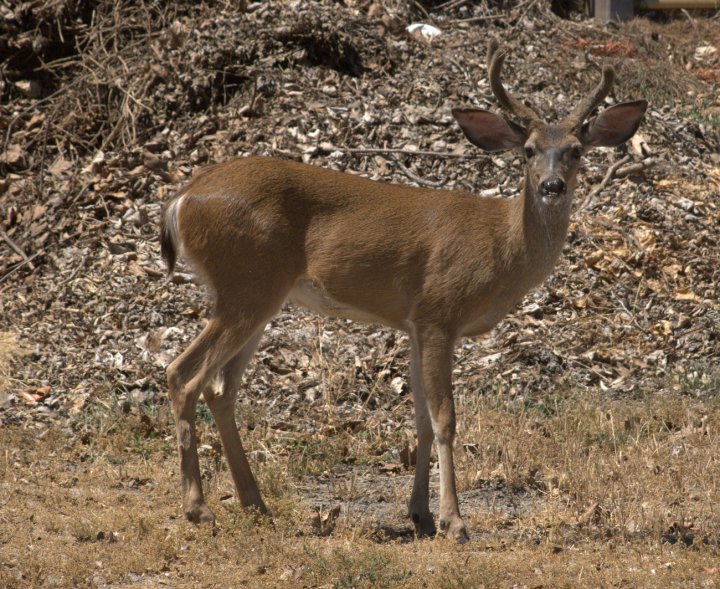Lea este articulo en español aquí.
According to a news release from the California Department of Fish and Wildlife (CDFW) chronic wasting disease has been detected in deer in California. The Department received confirmation on May 6 that samples collected from two deer, one in Madera County and one in Inyo County, tested positive. The cause of death in Madera County is unknown, the deer in Inyo County was found dead after a vehicle collision.
Chronic wasting disease is a fatal neurologic disease in cervid animals such as deer, elk and moose that has been detected in free-ranging cervids from 34 states and five Canadian provinces. According to the Centers of Disease Control and Prevention it can affect animals of all ages and is fatal to animals. There are no treatments or vaccines.
CDFW’s website states the disease is caused by an infectious prion, which is a misfolded protein that causes spongiform encephalopathy or brain disease that causes holes in the tissue and dysfunction of the infected organ. There appears to be no known link between chronic wasting disease and human disease, although a similar prion animal disease, bovine spongiform encephalopathy or mad cow disease in cattle, has been linked to fatal disease in humans through the consumption of infected beef.
CDFW has been monitoring California elk and deer populations for chronic wasting disease through lymph node sampling and testing since 2000, testing over 6,500 deer and elk. Since 2018 the department has been working to increase surveillance efforts with the help of hunters, taxidermists and meat processors.
Clinical signs of the disease in infected animals include progressive weight loss, clumsy movements, lack of coordination, listlessness, drooling, excessive thirst or urination and behavioral changes. Once these symptoms develop, death occurs quickly.
CDFW believes the disease has been present in California for some time, since the incubation period can be months to years.
Infectious prions can be excreted in urine, feces and saliva of infected animals before they show any signs of the disease. Carcasses and tissues, especially brain, spinal cord and lymph nodes of infected animals contain infectious prions and can spread the disease if left out on the landscape.
“Infected animals can excrete infectious prions before clinical signs appear and these prions can persist in the environment for years, making it very difficult to prevent or control the spread once it has been introduced,” said Dr. Brandon Munk, CDFW’s wildlife veterinarian who oversees chronic wasting disease surveillance and response efforts. “The public can help limit the spread of chronic wasting disease by reporting any signs of illness in deer and elk populations and hunters should strongly consider testing their harvested deer or elk.” According to Cleveland Clinic, several methods of testing can be used, including blood tests and examination of brain tissue.
Animals can be tested at CDFW sampling stations, participating taxidermists or meat processors. The nearest sample station to San Benito County is in Patterson and the nearest participating taxidermy/meat processor is in Fremont.
CDFW continues to provide surveillance, response, long-term management plans and public outreach and education through their “No Time to Waste” campaign to limit the spread.
To report a sick deer or elk contact Wildlife Mortality Reporting.
We need your help. Support local, nonprofit news! BenitoLink is a nonprofit news website that reports on San Benito County. Our team is committed to this community and providing essential, accurate information to our fellow residents. It is expensive to produce local news and community support is what keeps the news flowing. Please consider supporting BenitoLink, San Benito County’s public service, nonprofit news.

